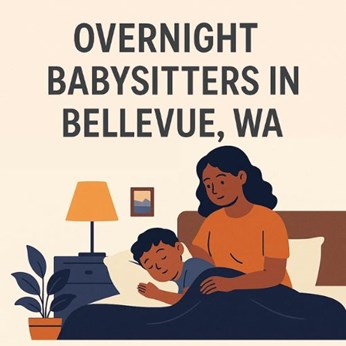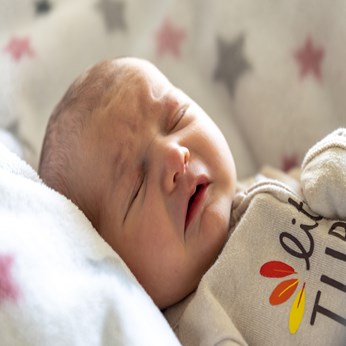3 Important Causes For Vision Loss In Elders
One of the common manifestations of aging is vision loss; with the 3 important causes of vision loss being cataract, glaucoma and macular degeneration. Early detection is the key to effective treatment for these silent stealers of sight that may go unnoticed for long. Knowing the symptoms of these disorders, with regular eye checkups could nip them in the bud.
The 3 important causes for vision loss in elders:
1) The first cause of vision disorder is Age Related Macular Degeneration or AMD; this cruel and frustrating vision disorder causes progressive retinal damage. Elders suffering from this vision disorder would have the peripheral vision intact, though he would find it difficult to focus on any object. Affecting every 1 out of 3 elder above the age of 75, the elder would even find it a challenge to read, recognize faces and the right medicine. They would carry a risk of falls with overlooking and misjudging obstacles. It is however fortunate that AMD does not lead to total blindness or any other health disorders, with there being medicines to slow their progression.
2) Cataracts more commonly occurs in elders, with every 1 out of 2 elder above the age of 80 suffering from this disorder. It causes clouding of the eyes lens with clumps of naturally occurring protein. Appearing as a discoloration over the iris or pupil, cataracts causes a blurring of vision and impairs one’s ability to see colors. Though not painful, cataracts can lead to total blindness and impair an elder’s ability to live independently. Mild cataracts need frequent medicated eye drops, but when it causes problems in the day to day living, it is best to go in for surgery to remove the cataracts.

3) The next important cause for vision loss in elders is glaucoma; caused by increased pressure in the eye cavity, this disorder could lead to damage of the nerve and vision loss sometimes also accompanied by pain. Elders with glaucoma could experience tunnel vision and gradual loss of peripheral vision. According to the National Institute on Health (NIH), every 8 elder out of 100 aged 70 and over have the beginning stages of this vision disorder. Glaucoma affects elders’ vision differently than macular degeneration; when severe it could also hinder the elders’ ability to live independently. There is no cure for glaucoma, though its progression can be slowed with being treated surgically and pharmaceutically.
It is to be understood that most of these vision loss causes have their roots in both lifestyle and genetic factors; it being evident that the loss of vision becomes worse if not treated in time. So it is best that those above 65 years of age have an annual eye examination.
Image Courtesy: Google
Take the next step toward your goals
Share your requirement and find the best care providers in your area
-
Looking for a caretaker’s job? Build your profile and get in touch with families in your vicinity.
-
Discover nannies, babysitters, cooks, housekeepers, pet sitters, and elder care under one roof.
-
Get all the support you need to run a successful care center.
-
Search for appropriate centers near you depending on your needs.
Care Corner Insights: Blog Library

Overnight Babysitters in Bellevue, WA for Business-Travelling NRI Parents: Safety & Policies
For many NRI parents living in Bellevue, WA, frequent business trips are a reality. While traveling, one of the biggest concerns is ensuring your children are safe, cared for, and emotionally supported during overnight stays. Overnight babysitters ca

Indian Home-Style Cooks in Queens, NY: Tiffin-Style Weekly Meal Prep from Your Kitchen
Queens, NY, is home to one of the most diverse food cultures in the country, and Indian cuisine holds a special place among families looking for authentic, comforting meals. While restaurant takeout is convenient, nothing compares to the taste and nu

Baby Sleep Problems: What is Sleep Regression and How to Handle It
If you’re a parent, you know that baby sleep is one of the greatest mysteries of life. One day your little one is snoozing like an angel, and the next day they’re suddenly waking up every hour, fussing, or refusing to nap. Before you panic, there’s a

What is Validation Therapy? A New Approach to Dementia Care
Caring for loved ones with dementia is one of the most emotionally challenging journeys a family can face. Traditional methods often focus on correcting memory lapses or redirecting confused thoughts—but that can sometimes lead to frustration, stress

What is a Part-Time Nanny and Do You Need One
Parenting is a beautiful journey, but let’s be honest—it can also be exhausting! Between work deadlines, household chores, and family responsibilities, sometimes there just aren’t enough hours in a day. That’s where part-time nannies step in, offerin

Part-Time Housekeeper Hiring in Alpharetta, GA: Weekly Schedules, Pricing, and Must-Do Tasks
Keeping a home spotless while balancing work, family, and personal commitments can be overwhelming. For families and professionals in Alpharetta, GA, hiring a part-time housekeeper is one of the most practical solutions. Whether you need help once a

Affordable Daycares in Irving, TX with Indian Menu Options: Parent Reviews & Enrollment Tips
Finding the right daycare for your little one is never an easy decision—especially if you’re looking for one that fits your budget and offers familiar food options like an Indian-inspired menu. For parents in Irving, TX, the good news is that several

Can Babies Sleep on Their Side? Tips for Safe Baby Sleep
When it comes to newborns, every parent worries about the smallest details—how they sleep, what they wear, even which way they turn their tiny heads. One common question that pops up is: “Can babies sleep on their side?” The short answer? Not recom

8 Benefits of Hiring a House Cleaner for Your Home
Let’s be honest — keeping a home sparkling clean while juggling work, family, and daily life can feel like a full-time job in itself. That’s where professional house cleaners step in, turning the chaos into calm. If you’ve been debating whether to br

How to Care for a Gassy Baby? What’s Normal and what’s not – Expert Advice
If you’re a new parent navigating the world of burps, bubbles, and baby fussiness—welcome to the club! Gas in babies is incredibly common, especially in the first few months. But how do you know what’s normal and when it’s time to call in expert help